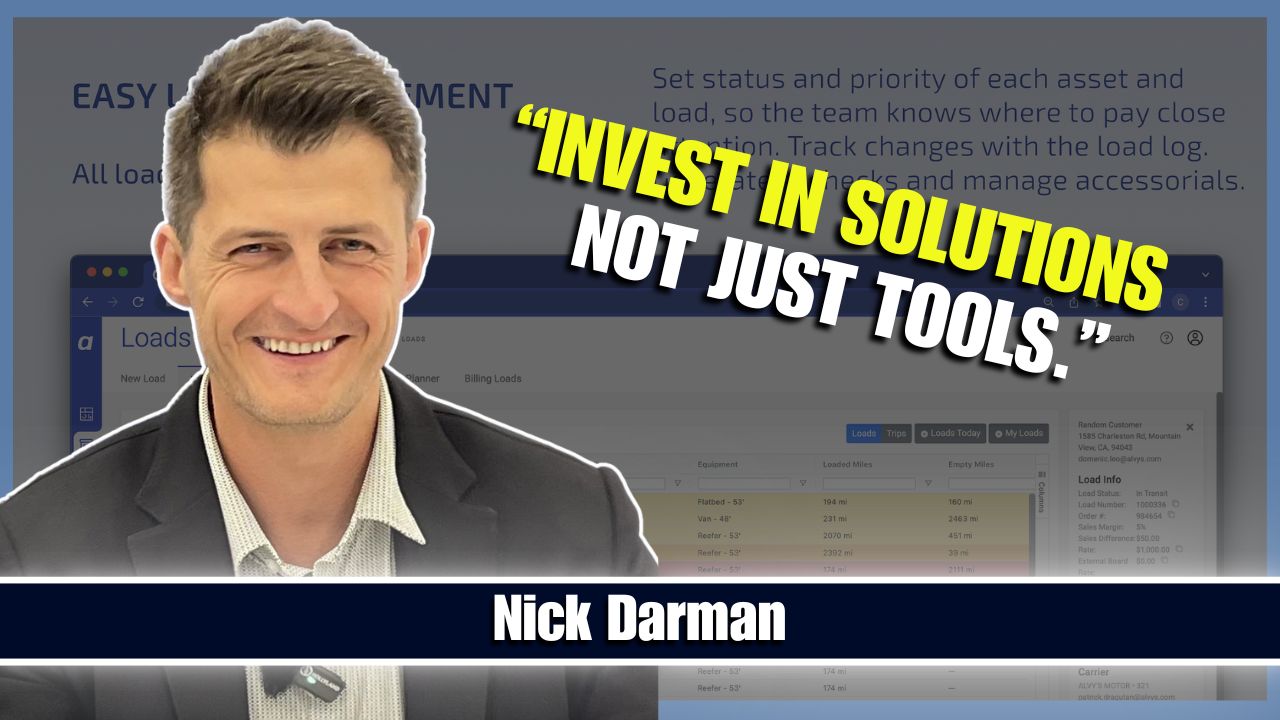In the competitive world of freight and trucking, building a thriving business can feel overwhelming. Many owner-operators and small fleet owners wonder how to stand out, secure consistent loads, and build a company that lasts. At Miles and Mentors, we believe that relationships are the real currency in trucking. In this article, we explore the power of relationships in freight, drawing from Anthony Villanueva trucking insights. You will learn why relationships are the real currency in trucking, how to build them, and how to turn them into long-term success.
We will explain how managing your account relationships is as important as managing trucks. We even touch on how some larger logistics providers use features from app download Apple Store platforms or tools like Excel pivot tables to track performance metrics and customer satisfaction. These tools help build strong client relationships and keep rights reserved properly managed through privacy agreements.
Understanding the Importance of Relationships in the Freight Industry
Why are relationships important in the trucking industry?
Relationships in trucking create stability, profitability, and resilience. Building relationships in trucking gives owner-operators and small fleets a competitive advantage. Trust and reliability allow you to retain customers even when rates fluctuate. Your reputation becomes a tangible asset. In volatile markets, strong relationships help you navigate sudden changes and avoid costly deadhead miles.
Anthony Villanueva trucking insights remind us that your network is your currency in trucking. When brokers and shippers trust you, they will send you better loads and recommend you to others. This is the power of relationships in freight: opening doors that no cold call or load board can.
The Value of Relationships as an Asset
Anthony shared that in his early years, networking in trucking industry events allowed him to build trust with brokers and shippers. These early connections evolved into long-term partnerships. Successful freight business relationships give carriers a chance to negotiate better rates and secure consistent work. Strategic freight brokerage networking means positioning yourself as a reliable, proactive partner who understands the needs of your customers.
Relationships also support sustainable growth in trucking. By connecting with other small fleet owners, you can expand your service offerings and handle more loads without overstretching your resources. Anthony emphasizes that these connections can make the difference between surviving a slow season and growing stronger during a busy one.
In today’s trucking market, technology also plays a part. For instance, using tools like add power pivot Excel to analyze your freight data can help manage account performance and understand which partnerships are most profitable. In an industry shaped by constant change and competitive pressures, small fleet owner relationship advice includes using data as well as trust to build strong client relationships.
Cultivating Strong Relationships in the Freight Business
How do you build relationships in the freight industry?
Start by attending local and national logistics events focused on freight brokerage networking and operational best practices. Face-to-face conversations build trust faster than any email or phone call. Follow up promptly with personalized messages that show you listened and understand their concerns.
Leverage social media, especially LinkedIn, to build your personal brand and stay top of mind with your network. Leveraging LinkedIn for trucking helps you connect with shippers, brokers, and other drivers who value your perspective. Share posts about your experiences on the road, challenges you have overcome, and insights from Anthony Villanueva trucking insights.
Trucker networking strategies are about showing up consistently, not just when you need something. Comment thoughtfully on others’ posts and share valuable insights. Over time, these actions establish you as a professional who understands the importance of networking in trucking.
Don’t forget to build strong client relationships by maintaining accurate documentation. Many brokers or shippers will reference your agreement privacy policy or rights reserved clauses, especially when sharing sensitive routing or cargo details. Being transparent builds further trust.
The Role of Mentorship in Long-Term Success
What are the benefits of mentorship in trucking?
Mentorship in trucking accelerates your learning and growth. Anthony credits mentors for helping him understand factoring, negotiate better rates, and improve owner operator relationship building. Practical trucking industry mentorship tips include asking about cash flow management, how to build a trucking network, and how to handle unexpected slow periods.
Mentors can even connect you to resources beyond trucking, such as access venture capital options or managing account reimbursement practices that help you fund new trucks or technology upgrades. A trusted mentor can also share how to handle regulatory details like the agreement privacy policy for digital freight documents.
Practical Tips for Building Relationships in a Competitive Market
Here are some practical steps:
- Use LinkedIn and digital tools to stay connected to your network. These tools often include app download Apple Store grade features such as notifications and messaging.
- Attend freight brokerage networking events regularly and follow up promptly.
- Be proactive in offering help, like sharing leads or referrals.
- Offer feedback to brokers and ask for it in return.
- Share updates on how you action climate change initiatives like route optimization or low-carbon fuels. Many aerospace power systems providers are now expecting these in supply chain processes.
- Use data tools and feedback apps to build trust and manage account performance.
These practices create a trucking business growth roadmap based on trust, climate awareness, and shared goals. Highlighting how you address phone number updates or contact changes shows professionalism in maintaining communication without losing clients.
Leveraging Relationships for Sustainable Success
How can small fleet owners network effectively?
Small fleet owner relationship advice starts with partnership. Anthony has worked with local businesses, sharing loads and routes to build stronger bonds. These collaborations reflect trucking company growth through connections. They help you expand your service offerings without overwhelming your capacity.
Connecting with freight brokers builds steady load opportunities. Strong freight brokerage networking means understanding broker expectations and delivering consistently. In turn, brokers reward carriers who communicate proactively when delays or changes occur.
Driver recruitment through networking is another benefit. When drivers hear you build strong relationships with customers and partners, they are more likely to stay with you. This lowers turnover and improves the stability of your fleet.
Building a Culture of Collaboration and Support
A successful freight business relies on collaboration both inside and outside your company. Consistent networking in trucking industry groups and online communities fosters a culture of shared purpose. Your drivers and dispatchers will see how customer experience and supply chain success depend on proactive communication and mutual respect.
Your efforts to address climate change or aerospace power systems regulations place you ahead of competitors and show the industry you care beyond profits. Your customer becomes part of your team. Real-time updates, proactive problem-solving, and mutual respect increase loyalty because people do business with people they trust.
The Long-Term Benefits of Relationship Focus
Relationships in trucking give you access to better loads, better rates, and more support when times get tough. Building mutually beneficial relationships and managing your accounts carefully are the foundation for stability and growth.
For small fleets, the best roadmap often combines data tools like Excel, honest conversations, and a willingness to adapt. Anthony’s story proves that when you treat every partner as a team member, your network will invest in you too.
Ready to Start or Grow Your Trucking Network?
If you’re starting a trucking business or growing your fleet and need expert insights, reach out to us today. Our partners can help you make the right decisions for long-term success. Your relationships are the real currency in trucking. Start building them today.



